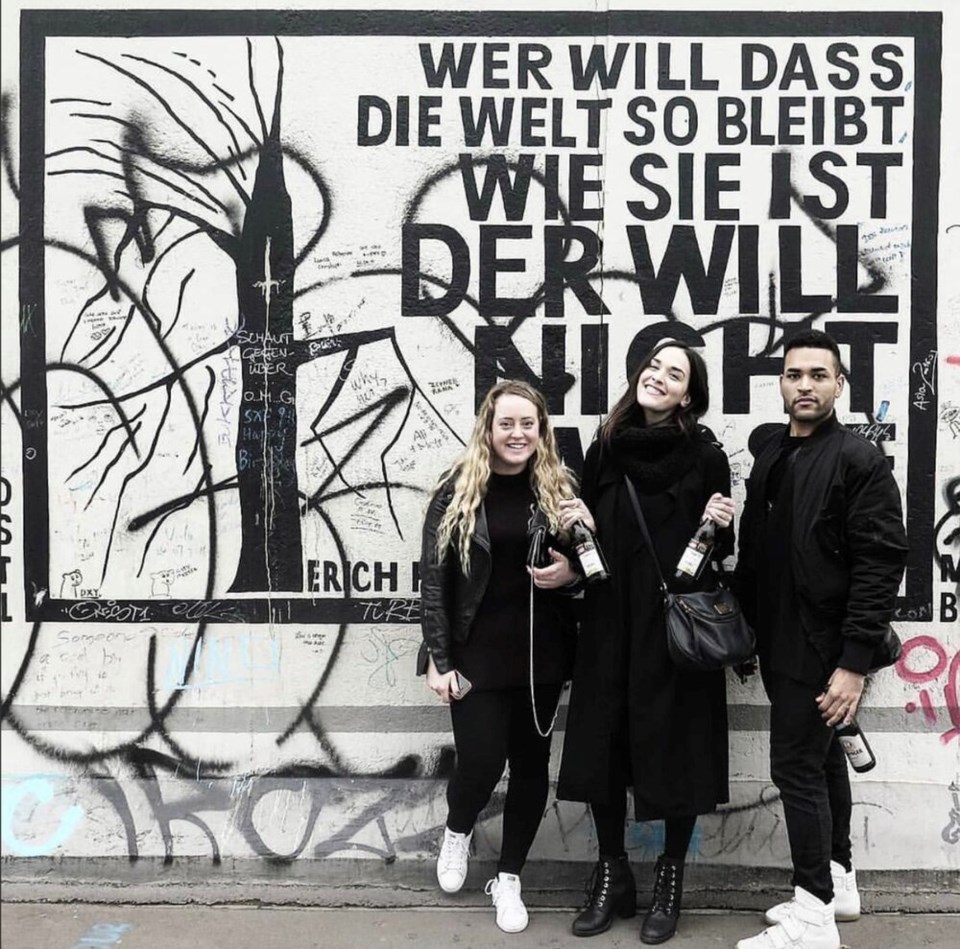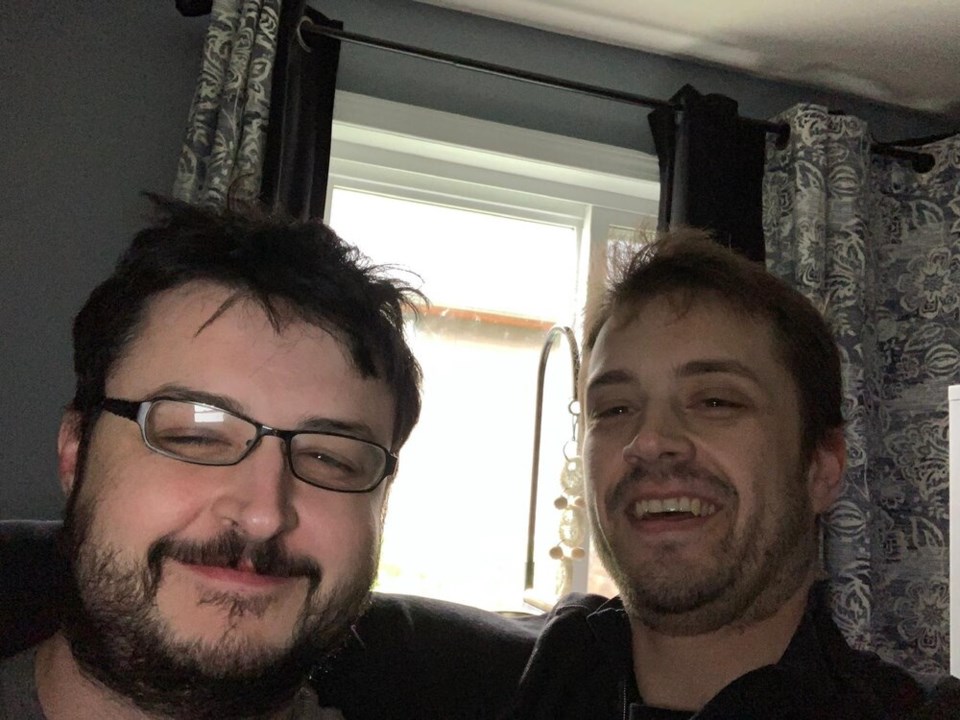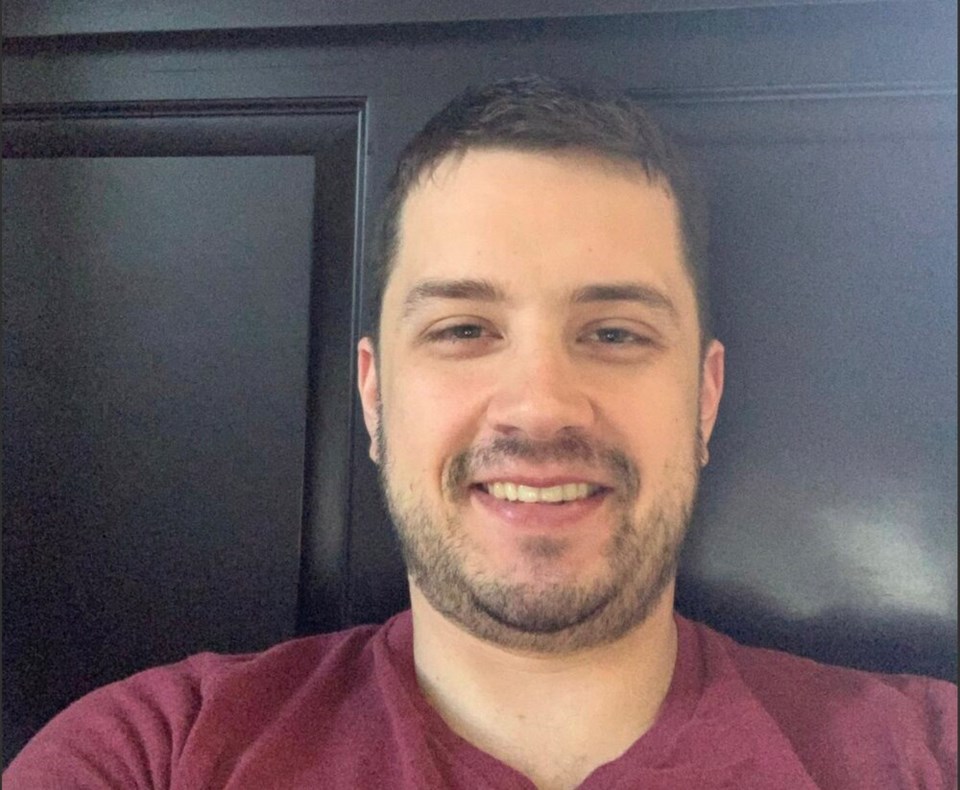A few days ago, Bryson Woolsey was a cook at Powell River General Hospital — now, he’s preparing to go to war.
The 33-year-old Canadian is among hundreds of young men and women around the world answering a call to join a newly formed Ukraine International Legion of Territorial Defence to fight a Russian invasion.
“When I saw that, I was like ‘OK, I want to get over there and help,’” he told Glacier Media Tuesday.
Woolsey has no formal military training and no family in Ukraine to defend or avenge. But when he saw rockets landing on the cities of the Eastern European country, he says his mind turned to the German invasion of Poland at the start of the Second World War.
“Sitting here and just kind of living in the cushy life that I live, I felt like it was my responsibility to give those people a chance as well to have the life that we have here. And if it takes me being over there to help them get that, I'm more than willing to do that,” he said.
VOLUNTEERS MOBILIZE THROUGH SOCIAL MEDIA
Over the weekend, Ukraine Minister of Foreign Affairs Dmytro Kuleba said on Twitter that all foreigners willing to defend Ukraine should contact the country's diplomatic missions overseas.
“Together, we defeated Hitler, and we will defeat Putin, too,” he wrote on Feb. 26.
Since then, Woolsey said it’s been nearly impossible to get through to the Ukrainian embassy in Ottawa.
One embassy official told Glacier Media Tuesday its website and email accounts were down due to cyberattacks. Embassy officials have not yet responded to Glacier Media’s questions over how many Canadians have applied to fight in Ukraine.
But some Canadians have already made it to the Ukrainian border.
Ontario comedian Anthony Walker made headlines around the world in recent days after he took to social media to document his trip from Port Hope, Ont., to Poland, where he has been working as a medic since last week.
Michael Schok, a 33-year-old former English teacher from Surrey, B.C., said he saw a BBC story about how Walker had travelled over 5,000 kilometres to fight and called up the embassy.
It took him six calls to finally get through. When he did, Schok was given an alternative email and told to respond with his name, age and any combat experience or special training he has. That was two days ago. He’s still waiting for a response.
Schok says he has a background in cybersecurity, and speaks four languages, including German, French and “some Russian.”
“I know what to do with most gunshot wounds or with physical trauma,” he said. “I’m a student of history as well.”
“I spent four years learning about the perils of war, what it does, and just the culture that's built up in Europe, that ‘this can never happen again.’”
A gay man with Ukrainian roots on his mother’s side, Schok said he fears a repeat of the violence against gay people after the German take-over of Europe in the Second World War, and how today, Russia’s authoritarian government has taken aggressive steps to suppress its own LGBTQ community.
He says he’s prepared to help defend Ukraine doing “literally anything,” from carrying bodies to hauling sandbags to working in a field hospital.
And while he says his strongest points are his language skills, he’s steeling himself for the possibility of being handed a gun and getting posted at an airfield.
“The possibility of shooting or killing someone weighs more heavily on me than getting injured myself,” said Schok.

Like thousands of other foreign nationals looking to fight in Ukraine, Woolsey and Schok turned to Reddit to navigate a complicated trip. There they found forums filled with veterans offering tips to people who had never fought in a conflict zone, and people willing to sponsor people looking to hop on a plane to Poland.
A former resident of Victoria, Woolsey was about to start school in Vancouver to become an addictions councillor. Now, he’s finding a way to postpone his student loan and enrolment.
He spends his days wrapping up his life in Powell River while buying combat boots, first-aid supplies and headlamps from Amazon — all part of a long list of gear veterans are recommending volunteers pick up before they fly to Europe.
Through the social media platform, Woolsey has already received an offer from a U.S. citizen to pay for his flight to Poland. On Tuesday, he started a GoFundMe campaign to help raise $2,000 to pay for gear.
“The fastest way as of right now is to just fly to Poland and there are Polish citizens offering rides to volunteers. “You go to the border, show your passport. Border guards will point you to get some training, some supplies and they’ll send you wherever they need you,” he said, citing advice from other volunteers who have already made the journey.
Now, he says, he just has to get all his “ducks lined up in a row.”
‘GRIM’ SITUATION ON THE GROUND
Woolsey said he has received calls and Facebook messages from other would-be volunteers from across the U.S. and Europe. Many, he says, are racing to the Polish-Ukrainian border hoping to make it across before Russian forces capture the country’s major cities.
Tens of thousands of Ukrainian civilians have answered a call from Ukrainian President Volodymyr Zelenskyy to take up arms and attack Russian forces with whatever they have. Videos of Molotov cocktail workshops and ambushes against Russian convoys have filled social media channels in recent days.
But military experts warn it’s only a matter of time before Russia’s technologically superior force overwhelms Ukrainian defences.
On Tuesday, Russian forces once again pounded civilian targets in Ukraine’s second-largest city, Kharkiv, as a 65-kilometre long convoy of tanks and other military vehicles threatened the capital Kyiv.
“The situation on the ground is grim. The reality always was the prospects for Ukrainian military victory were very low,” said Allen Sens, an international security expert at the University of British Columbia.
Sens says it appears Russian forces are preparing to encircle some key elements of the Ukrainian army. The next stage, he predicts, will be a siege and bombardment of cities and troop concentrations in an effort to eventually either starve out the defences inside the cities or to soften them up in preparation for an assault.
“We're seeing them activate the next stage of planning, which is a much more lengthy campaign,” said Sens, estimating formal operations could last another week to 10 days.
He expects people who have left or are on their way now have a reasonable prospect of entering the country while formal military hostilities are underway.
After that, Sens says there’s a good chance the war could evolve into a resistance movement, with elements of the Ukrainian army and informal militias conducting a campaign of guerrilla war.
“In other words, we could see an insurgency. We could see a countryside partisan kind of style warfare, which the history of Ukraine is filled with. We may see sort of a Northern Ireland kind of scenario where there are urban acts of resistance and violence,” he said.
“The actual fighting might continue well past the point where large scale military combat is over.”
VOLUNTEER WITH ‘BOTH EYES OPEN’
What kind of fight volunteers walk into will depend on whether the Ukrainian government can maintain command and control over its armed forces, said Sens.
In that unpredictable situation, it’s not clear how much training will be available when volunteers arrive in Ukraine.
“If you have military training, or you have some other kind of training, like you're a trained paramedic, or something of that nature, or you have a technical skill that can be very useful — aircraft mechanic, heavy machinery, mechanics, that sort of thing — these can be very important contributions,” he said.
Ask yourself, added Sens, will you be useful? Will you put yourself in a position that is dangerous? Not only to yourself, but potentially, to others as well? Then ask yourself if you are ready to accept the risk of getting killed or seriously injured in combat.
Whatever the answer, Sens cautions people looking to join the war in Ukraine do so with “both eyes open” to the consequences.
Woolsey, the former cook, says it’s hard to have expectations before heading into a war zone, though he's ready to be thrown in with the infantry.
“They'll know where they'll want me,” he said. “I'm not gonna go in there and say ‘I want to do this.’”

RISK OF BEING LABELLED A TERRORIST
Canadian Foreign Affairs Minister Mélanie Joly said Sunday the choice to go and fight in Ukraine is an “individual decision.”
But even a green light from one’s own country doesn’t eliminate the legal risk of entering a battle zone as a foreign national.
Sens warns that Russian forces may not recognize the newly formed Ukrainian legion as a legitimate fighting force, and that if captured, foreign fighters might get treated as an enemy combatant — or worse, a terrorist.
“One could be accused, for example, of being a mercenary, and mercenaries do not receive the same coverage and protections of international humanitarian law,” he said.
“People are going out of passion, out of anger and frustration, wanting to do something. It’s perhaps something that they're not giving the full attention to.”
WORRIED HE’LL BE TOO LATE
Schok’s reasons for going off to fight in Ukraine are complicated. Part of his motivation comes from his Ukrainian heritage; part of it comes from wanting to make a difference in what he sees as a critical juncture in world history.
But he also says he’s likely one of thousands, if not millions, of young people filled with angst and uncertainty.
“Just feeling the frustration at being ravaged by something you cannot control,” he said. “I'm frustrated enough, I am disillusioned enough, I am pissed off enough with the way the world has changed over the last few years [during the pandemic] and the way that society has become.
“This is something I can fight back on.”
As for Woolsey, he hopes to leave by next week. His biggest worry is he might be too late, that the growing Russian offensive will crush Ukrainian forces before he arrives.
But even if regular military operations do end, he says he’ll be ready to take part in whatever insurgency or growing refugee crisis comes next.
“It’s just a total chaotic mess. There are lots of refugees that need help,” he said.
He pointed to roughly 660,000 refugees who, as of Tuesday, had fled the country into neighbouring Poland, Moldova, Romania, Slovakia and Hungary.
“I would like to do what I can to help them really fight for their freedom.”
With files from the Associated Press and Canadian Press



